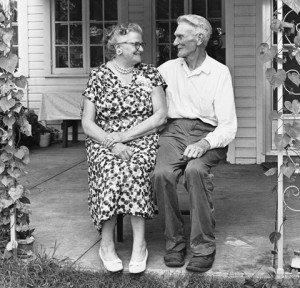The following is an excerpt from a teaching by Jetsunma Ahkon Lhamo called “The Bodhisattva Ideal”
One of the main thoughts that one hears when one begins to turn the mind toward Dharma is the idea of impermanence. Now when we hear that all things are impermanent, we take this just as it sounds. We know from our own experience that all things are impermanent, or at least we know that roughly. We know that if we buy ourselves a quart of milk that the quart of milk will either sour or be used up. We know that if we buy a car or a color TV or something like that, that eventually the car or the color TV will break down. Then we’ll have to buy another one and go through the entire process again. We also know that what is young becomes old, much to our dismay, and that no matter what we do, what we do only works temporarily—what was young becomes old. We also learn that what is high will become low; what is low will become high. What is brought together will separate; what is separate will be brought together again. These aspects of the idea of impermanence we don’t really hold to; we don’t really understand very well. We try to have a more superficial view of impermanence because the idea is painful. It’s not our favorite concept.
When the Buddha taught us about impermanence, he taught us about impermanence as a way to understand the faults of samsara, and as a way to understand how suffering is all-pervasive. Again, as human beings, we like to ignore the idea of suffering. Of course, when we are suffering and we can feel it very deeply, it’s pretty hard to ignore, but when we are feeling pretty and feeling comfortable, the idea of suffering becomes sort of distant and cloudy. When we feel up, in a way, we have mixed feelings. We feel as though it’s always going to be this way and life is pretty good. But then, by the same token, we’re afraid to feel too up, because we know if we feel too up we’re going to have too far to fall. It’s odd. We have this neurotic capacity for seeing the truth, and yet using it against ourselves or hiding it from ourselves. It’s like we know, but we close our eyes because we don’t want to know.
So this particular suffering of samsara becomes to us somewhat hidden; and actually the hiding of this particular truth leads us to many disappointments. For instance, in the case let’s say, of meeting someone that you love very much, meeting a loved one and coming together with that loved one in some capacity. Perhaps if it is a romantic relationship, and there is a coming together in marriage or something of that nature. If it is the coming together of a parent and child such as in the birth of a child, then the parent sees the child and the child sees the parent. The parent, being the elder, has the capacity to perhaps recognize something very familiar about that child, or to feel that this isn’t a new acquaintance, that there is a deep and profound connectionwith this child.
Sometimes people will meet each other in a very casual way and will become instant allies and best friends. I know that’s happened to each one of us at some point in our lives. It certainly has happened to me. You meet someone and suddenly this person becomes your ally, your friend, someone who is really a helper to you and who understands; and it feels as though you have been friends for a very long time.
So in each of these cases, when we have these wonderful meetings that bring us so much joy, at that point we like very much to forget that that joy is impermanent. Yet, everything we know and everything we’ve seen teaches us and leads us to believe that everything is impermanent. We have seen that even in the case of romantic relationships that result in marriage. Should that marriage go really well, then ultimately the bond will be separated through death. And we know that in the case of parents and child, no matter how close the parent and child are when they are younger, the relationship will evolve and change. In some cases the relationship becomes very distant, unfortunately. In other cases where that does not occur, then even when the relationship between parent and child stays loving and has mutual concern in it, still eventually one will leave the other. There will be the separation of death. The separation of death always happens. Even within that experience of togetherness, there is so much change that you can literally say that two people who married in their twenties are not the same people that are together in their sixties and seventies. They look completely different. There are worlds of difference between a twenty-five year old and a sixty year old. There is a vast amount of experiential living and maturity that has occurred. That person at twenty is quite different when they reach sixty, very different.
I remember being in my twenties, and where I was and where I wasn’t. And I know that I am not the same as I was. I know that many of my understandings, beliefs, habits, even values have matured and changed. So it is impossible to think that we will remain in the same comfortable, stagnant condition for the rest of our lives, let alone the fact that we are all separated by death.
Copyright © Jetsunma Ahkon Lhamo. All rights reserved

